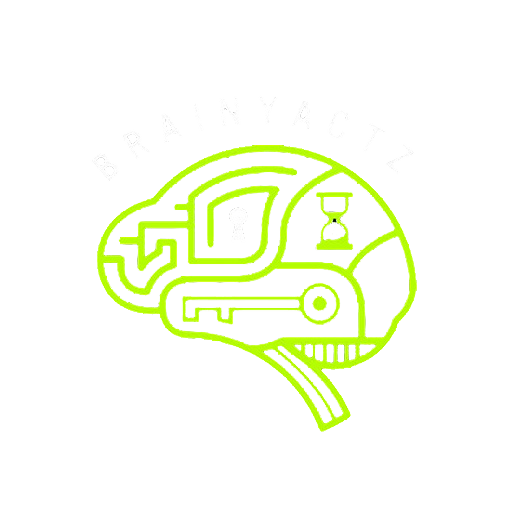Corporate trainers have found a unique strategy for developing leadership skills: escape room challenges. These immersive experiences offer a fresh approach to management training, engaging teams in problem-solving and decision-making in a high-pressure, real-world setting. Escape rooms serve as a dynamic platform to assess and enhance leadership qualities, communication skills, and teamwork. This article shares insights from corporate trainers who have successfully used escape room challenges in their leadership development programs, demonstrating how these experiences can transform team dynamics and strengthen leadership within organizations.
Key Takeaways
- Escape rooms reveal leadership potential and improve team communication skills
- Gamification through escape challenges boosts productivity and employee engagement
- Escape rooms provide insights into conflict resolution styles and situational awareness
- Thorough debriefing sessions enhance learning outcomes from escape room experiences
- Escape room challenges foster positive mindsets and improve workplace morale
Problem Solving and Critical Thinking Under Pressure

Escape room challenges enhance problem-solving and critical thinking under pressure, mimicking real-world business scenarios. These activities require full attention, creativity, and adaptability, fostering teamwork and leveraging individual strengths. The urgency of time constraints builds trust and improves workplace dynamics, often leading to better employee retention. Corporate trainers use these insights to tailor leadership development programs, preparing employees for complex challenges.
Analyzing Decision-Making Processes in High-Pressure Scenarios
Escape rooms simulate high-stakes environments, requiring teams to make quick decisions. Observing how participants prioritize tasks and make choices under pressure provides insights into their critical thinking and decision-making processes. This analysis is invaluable for understanding how employees might handle real-world crises or deadlines.
Building Trust and Team Dynamics Through Collaborative Puzzles
The collaborative nature of escape rooms strengthens team dynamics and builds trust. As participants depend on each other’s strengths to solve puzzles, they learn the value of collaboration and mutual support. This shared experience fosters improved workplace relationships and helps create a more cohesive team environment. By working together under pressure, team members gain a deeper appreciation for each other’s contributions, which can translate into better cooperation and communication in the workplace.
Data-Driven Insights for Tailoring Leadership Programs
Behaviors observed during escape room challenges can guide tailored leadership programs. By identifying specific strengths and weaknesses in problem-solving and team interactions, trainers can create customized training that addresses the unique needs of each team or individual. This approach enhances overall leadership development by focusing on relevant areas for improvement and leveraging existing strengths.
Healthy Competition and Team Management – Working Towards a Common Goal Together

Escape room challenges promote healthy competition and team management by encouraging participants to work towards a common goal, enhancing memory and problem-solving skills. Teams collaborate to overcome obstacles, creating team-building opportunities that improve workplace dynamics. Rewards like gift cards add motivation, reflecting organizational incentives. These challenges reveal natural leaders and team players, providing insights into leadership potential and team dynamics. Skills such as prioritization, strategic planning, and clear communication developed in these settings are directly applicable to real-world business scenarios.
Incorporating Incentives to Motivate Teams
Incorporating rewards such as gift cards or recognition can motivate teams during escape room challenges, mimicking organizational incentive structures and encouraging participants to strive for excellence. This approach not only fosters a friendly competition but also enhances engagement, driving teams to collaborate more effectively. The promise of rewards adds an extra layer of motivation, pushing team members to perform at their best and work together cohesively to achieve their common goal.
Identifying Natural Leaders and Team Players
Escape rooms provide a platform for individuals to display their natural leadership qualities and teamwork skills. Trainers can observe who naturally takes charge, who excels in supportive roles, and how team members collaborate. This insight not only helps in identifying key players and potential leaders within the organization but also provides valuable information on team dynamics and how individuals contribute to group success. By analyzing these behaviors, organizations can better understand their workforce and develop targeted training programs to nurture leadership and teamwork skills.
Applying Team Management Skills in Real-World Business Settings
The skills and strategies developed during escape room challenges are directly transferable to real-world business scenarios. Participants learn effective task delegation, resource management, and strategic planning, which are crucial for managing projects and leading teams in a corporate setting. Additionally, these experiences enhance problem-solving and teamwork, as participants must collaborate under pressure to achieve shared goals.
Understand Your Employee’s Workstyles of Conflict Resolution

Corporate trainers have discovered that escape room challenges offer a unique lens through which to observe and understand employees’ conflict resolution styles. These immersive experiences create high-pressure situations that mimic real-world corporate challenges, allowing organizations to assess how team members handle disagreements and solve problems under stress. By observing participants’ behavior during these scenarios, trainers gain valuable insights into individual and group dynamics, helping to identify areas for improvement in critical thinking and risk management. The accessibility of escape room challenges makes them an ideal tool for evaluating conflict resolution skills across various levels of an organization, from entry-level employees to senior leadership.
Some Conflicts That May Arise in Escape Rooms
Escape room challenges reveal conflicts similar to workplace situations, offering insights into leadership styles and conflict resolution. Participants may disagree over decision-making, resource allocation, or clue interpretation, mirroring real-world scenarios. These exercises highlight how employees manage pressure, aiding decisions on promotions or role assignments. As tensions rise, some focus on individual tasks, underscoring areas for improvement in communication and teamwork.
Observing Conflict Resolution Styles in Stressful Situations
Escape rooms create high-pressure situations that can lead to conflicts, providing an opportunity to observe how employees resolve disputes. Trainers can assess whether team members choose compromise, assertiveness, or avoidance, offering practical insights into their conflict resolution styles. This understanding helps tailor future training programs and improve team dynamics by addressing specific conflict resolution needs.
Leveraging Conflict Resolution Skills Across Organizational Levels
The conflict resolution skills observed in escape rooms can be applied at all levels of an organization. Understanding these dynamics aids in creating tailored training programs that address specific conflict resolution needs, thereby improving overall organizational harmony and efficiency. By focusing on these skills, companies can foster a more cohesive work environment, reduce misunderstandings, and enhance collaboration, ultimately leading to a more productive and positive workplace culture.
Develop Situational Awareness

Escape room challenges are effective for developing situational awareness, a key leadership skill. These experiences require participants to constantly assess their surroundings, adapt to new information, and make quick decisions under pressure. This practice improves their ability to navigate complex situations and anticipate challenges, which enhances job satisfaction and reduces stress. The skills gained, such as better communication and problem-solving, increase employee motivation and confidence, positively impacting their daily work and overall job satisfaction.
Enhancing Perception and Reaction Skills
Escape rooms require participants to be highly perceptive and react quickly to new information. These exercises enhance situational awareness by teaching participants to notice subtle clues and changes in their environment. This skill is crucial for leaders who need to stay alert to various factors in a business setting, helping them anticipate challenges and make informed decisions.
Adapting to New Information and Dynamic Situations
The dynamic nature of escape rooms requires participants to quickly adapt to new information and changing situations. This adaptability is crucial for leadership, as it helps individuals handle unexpected challenges and make informed decisions in real-time. Practicing these skills in a high-pressure environment builds resilience and enhances problem-solving abilities, preparing leaders to effectively manage complex and evolving scenarios in the workplace.
Increasing Confidence and Engagement in the Workplace
As participants develop situational awareness and adaptability, they gain confidence in handling diverse situations. This newfound confidence boosts engagement and proactivity in the workplace, fostering a more dynamic and responsive organizational culture. As employees feel more empowered, they are more likely to take initiative and contribute to a collaborative and innovative work environment.
The Debrief: Lessons From Winning and Losing

Corporate trainers stress the importance of debriefing after escape room challenges to reflect on team performance, discuss strategies, and identify areas for improvement. These sessions highlight the value of diverse perspectives and collective intelligence in problem-solving. Trainers also address the role of nonverbal communication, guiding participants to recognize how body language and gestures affected team dynamics. This awareness enhances workplace collaboration and reduces misunderstandings. Additionally, debriefs offer lessons in delegation and team health, helping to refine leadership strategies. Insights from these sessions inform future training programs and team-building efforts, showcasing successful outcomes, the importance of clear communication, and adaptability under pressure.
Reflecting on Performance and Strategy
Debriefing sessions after escape room challenges are essential for reflecting on team performance and strategies. During these discussions, participants evaluate what worked well and what didn’t, gaining valuable insights into their decision-making processes and team dynamics. This reflection allows team members to identify strengths and weaknesses, fostering a culture of continuous improvement. Additionally, debriefing helps clarify the roles each member played and how their contributions affected the group’s success or challenges. By analyzing these factors, teams can develop better strategies for future tasks, enhancing overall efficiency and collaboration in the workplace. This process not only solidifies the learning experience but also reinforces the importance of adaptability and effective communication.
Improving Nonverbal Communication Skills
The debrief process often brings to light the significant role of nonverbal communication in team interactions. Trainers help participants recognize how body language, facial expressions, and gestures influenced team dynamics and decision-making during the challenge. This process allows team members to reflect on instances where nonverbal cues either facilitated or hindered communication. By becoming more aware of these subtle yet powerful forms of communication, participants can improve their nonverbal communication skills in the workplace, leading to clearer understanding, reduced conflicts, and more cohesive teamwork. Enhanced nonverbal communication can also increase the effectiveness of conveying messages, fostering a more supportive and responsive work environment.
Learning from Delegation and Role Assignment
Analyzing how teams assigned roles and delegated tasks during escape room challenges offers valuable insights into leadership strategies and team dynamics. This process reveals how well individuals can take charge, communicate effectively, and manage resources. Understanding these dynamics helps identify strong leaders, highlight potential areas for growth, and refine leadership qualities. Additionally, these observations can guide the development of future training programs and team-building initiatives, ensuring they are tailored to enhance the specific skills needed for effective teamwork and leadership within the organization. This approach not only strengthens team cohesion but also fosters a culture of continuous improvement.
Conclusion
Escape room challenges offer corporate trainers a unique and effective tool for developing essential leadership skills. These immersive experiences provide valuable insights into team dynamics, communication styles, and problem-solving abilities under pressure. By incorporating escape room challenges into leadership training programs, organizations can identify potential leaders, improve team collaboration, and enhance critical thinking skills. The lessons learned from these gamified experiences translate directly to the workplace, fostering a more adaptable, communicative, and productive workforce.

